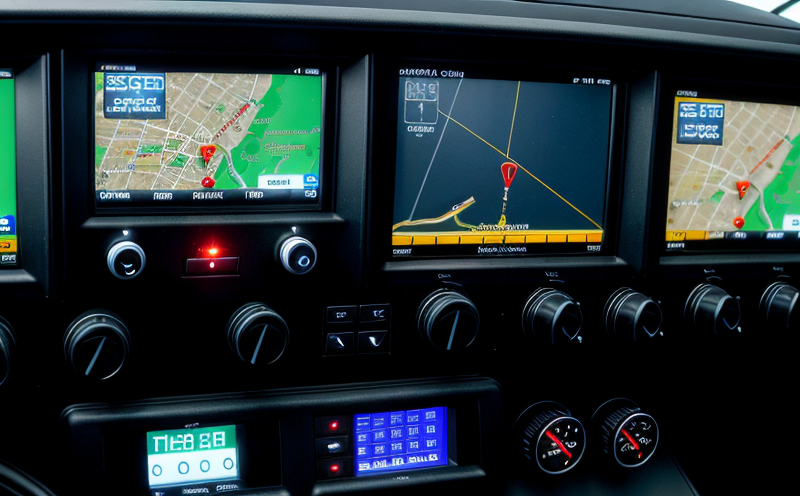IEC 60945 Environmental Testing of Marine Signal Lights
The International Electrotechnical Commission (IEC) standard IEC 60945 specifies the environmental testing procedures for marine signal lights, including navigation lights and other signaling devices. This standard ensures that these critical safety components meet stringent performance requirements under various environmental conditions encountered at sea.
Marine signal lights play a vital role in maritime navigation by providing visual signals to help prevent collisions between vessels or between vessels and fixed structures. These lights must withstand harsh marine environments, which can include exposure to salt spray, humidity, temperature fluctuations, and mechanical stress from impacts with debris. IEC 60945 addresses these challenges through a series of tests designed to replicate real-world conditions.
The standard covers several types of tests:
- Salt Spray Testing: Simulates the corrosive effects of salt spray on signal lights, ensuring they maintain their functionality and appearance over time.
- Humidity Cycling Tests: Evaluates the light's performance under varying humidity conditions to ensure it remains reliable in moist environments.
- Vibration Testing: Assesses how well the signal light withstands mechanical stress from waves or other external forces, which can affect its stability and operation.
- Temperature Cycling Tests: Ensures that the light functions correctly across a wide range of temperatures encountered during maritime operations.
Testing according to IEC 60945 is not only a regulatory requirement but also an essential step in ensuring the reliability and safety of marine signal lights. Compliance with this standard can help manufacturers meet international standards, enhance product quality, and protect against potential legal risks associated with non-compliance.
The tests outlined in IEC 60945 are critical for ensuring that navigation lights continue to function effectively under challenging conditions, thereby reducing the risk of accidents at sea. By adhering to these environmental testing protocols, manufacturers can demonstrate their commitment to safety and quality while also complying with global regulatory requirements.
Failure to meet IEC 60945 standards could result in equipment malfunction, which poses significant risks for maritime operations. Proper testing ensures that lights perform reliably under all conditions, thus enhancing the overall safety of marine navigation.
In summary, adherence to IEC 60945 is crucial for ensuring the reliability and performance of marine signal lights. This standard provides a robust framework for environmental testing, which is essential for maintaining maritime safety standards globally.
Industry Applications
- Marine Vessels: Testing ensures that navigation lights function correctly in various sea conditions and remain visible to other vessels, enhancing maritime safety.
- Oil Platforms: Ensures signal lights are reliable under harsh environmental conditions, critical for safety near oil rigs.
- Fixed Structures: Provides assurance that signaling devices installed on buoys or lighthouses can withstand the marine environment and continue to operate safely.
- Tugboats and Pilots Vessels: Critical for ensuring visibility of signal lights during crucial maneuvers in ports and harbors, where human lives are at risk.
The robustness and reliability of signal lights tested according to IEC 60945 are paramount for these applications. By adhering to this standard, manufacturers can ensure that their products meet the highest safety and performance standards required in maritime environments.
Eurolab Advantages
At Eurolab, we offer comprehensive testing services tailored specifically to IEC 60945. Our state-of-the-art facilities are equipped with advanced instrumentation and experienced technical staff who specialize in environmental testing for marine signal lights.
- Precision Testing: Utilize high-precision equipment to ensure accurate measurement of test parameters, providing reliable results.
- Comprehensive Reporting: Deliver detailed reports that not only summarize the test outcomes but also provide insights into potential areas for improvement.
- Regulatory Compliance: Our tests are conducted according to IEC 60945 standards, ensuring complete compliance with international regulatory requirements.
- Expertise and Experience: Benefit from our team's extensive experience in marine equipment testing, providing valuable input on design improvements based on test results.
- Cost-Effective Solutions: We offer flexible pricing options to fit your budget while delivering high-quality services.
- Timely Delivery: Ensure that you receive timely and accurate results, minimizing downtime in product development cycles.
- Confidentiality: Your data remains safe and secure with us, ensuring compliance with all applicable data protection regulations.
- Global Recognition: Our testing is recognized globally, enhancing the credibility of your products as you enter international markets.
Choosing Eurolab for IEC 60945 testing means leveraging our expertise and resources to meet stringent environmental requirements. Our commitment to quality and innovation ensures that your marine signal lights are tested and certified to the highest standards, enhancing their reliability and safety in challenging maritime conditions.
International Acceptance and Recognition
The IEC 60945 standard is widely recognized across the globe for its comprehensive approach to environmental testing of marine signal lights. This international acceptance underscores the importance placed on compliance with this standard, particularly in maritime safety.
Many countries have adopted IEC 60945 as a regulatory requirement for navigation lights and other signaling devices used in maritime operations. Compliance with these standards is not only necessary but also enhances the reputation of manufacturers who adhere to them. It demonstrates a commitment to quality and reliability, which can be advantageous when entering new markets or bidding on international contracts.
The standard's global acceptance contributes to harmonization in marine safety practices across different regions. By adhering to IEC 60945, manufacturers ensure that their products are consistent with international standards, thereby reducing barriers to trade and fostering a more unified approach to maritime safety.
Furthermore, compliance with this standard can lead to greater trust among stakeholders, including regulatory bodies, insurers, and end-users. This trust is essential for building strong relationships within the industry and enhancing overall market confidence in your products.
In conclusion, IEC 60945's international acceptance and recognition highlight its significance in ensuring maritime safety and reliability. By aligning with these standards, manufacturers can position themselves as leaders in quality and innovation, gaining a competitive edge in the global market.





